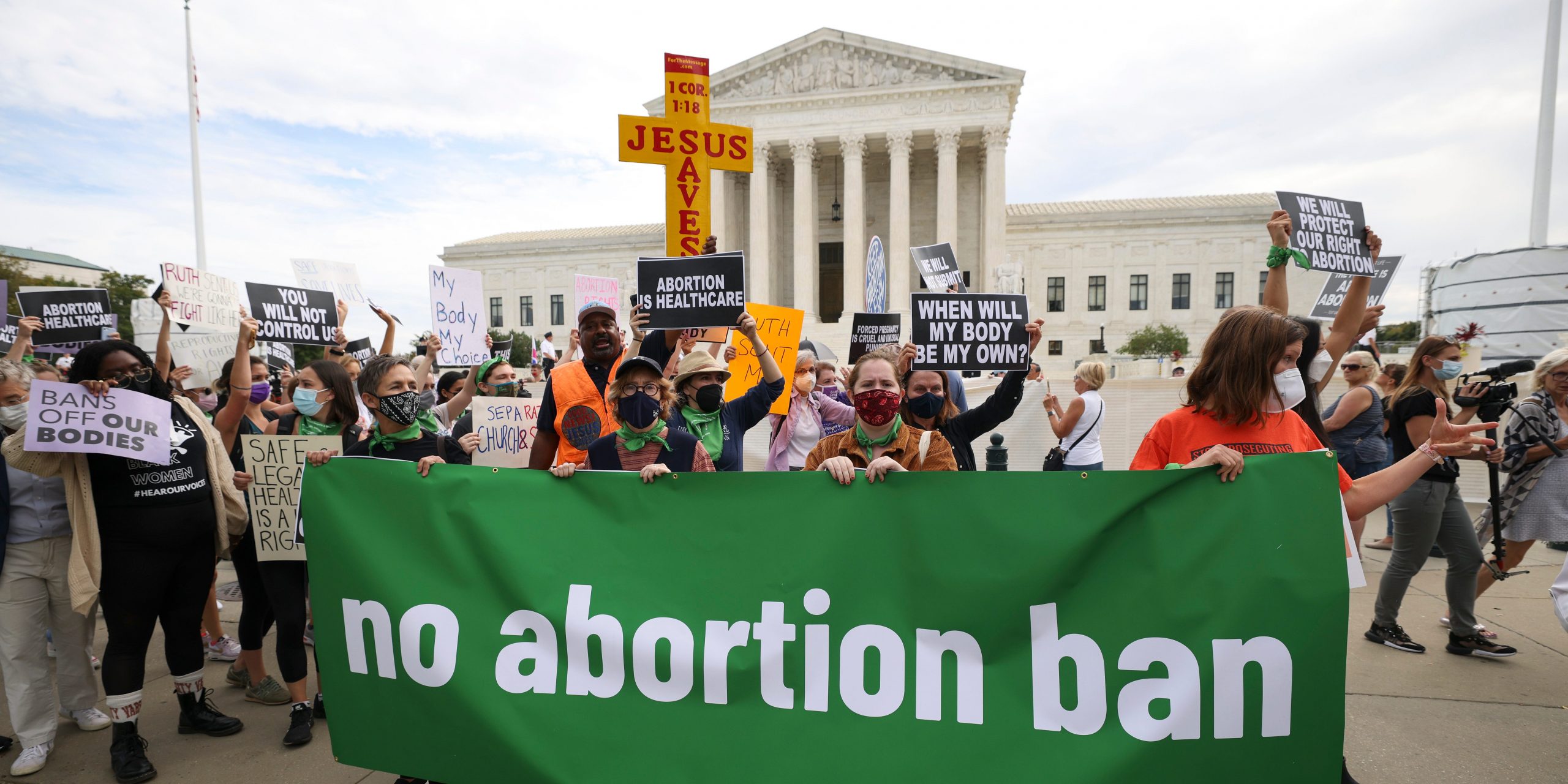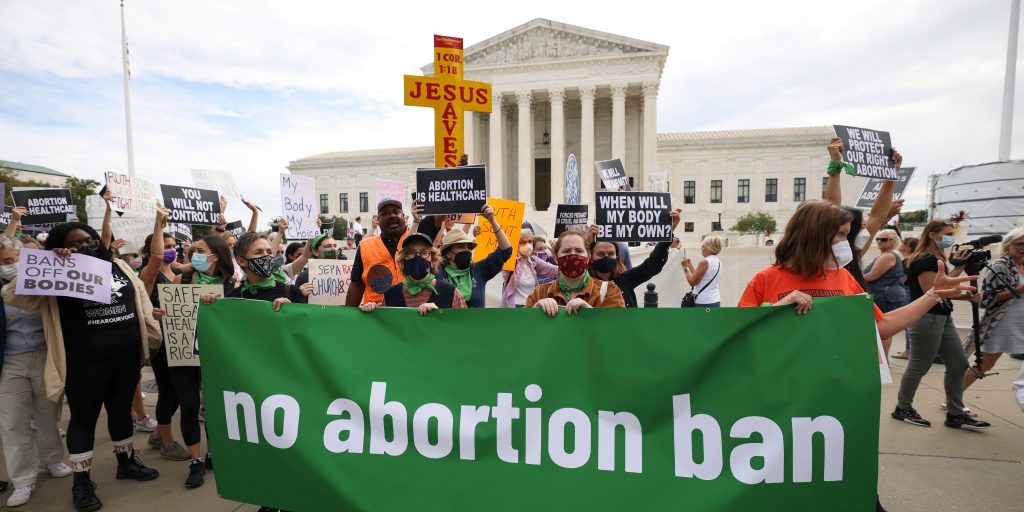
Kevin Dietsch/Getty Images
- The Supreme Court term started on Monday. The biggest case on the docket concerns abortion.
- The dispute involves a Mississippi law that bans nearly all abortions after 15 weeks of pregnancy.
- The court will hear arguments on the case on December 1.
- See more stories on Insider's business page.
The Supreme Court kicked off its new term on Monday as abortion-rights activists and anti-abortion activists alike protested in front of the building. While the nine justices will hear a number of high-profile cases in the coming months, a challenge to abortion rights is widely expected to take the national spotlight.
The case, Dobbs v. Jackson Women's Health Organization, concerns a Mississippi law that ban abortions after 15 weeks of pregnancy, except in cases of medical emergencies or severe fetal abnormality.
Then-Mississippi Gov. Phil Bryant signed the bill into law in March 2018 as part of a wave of Republican-led states seeking to enact abortion restrictions across the country. Immediately afterward, Mississippi's sole abortion clinic, Jackson Women's Health Organization, sued the state.
That year, a federal district judge struck down the law, saying it "unequivocally" violates the constitutional right to an abortion established nearly 50 years ago in the Supreme Court decision, Roe v. Wade. That 1973 landmark ruling legalized abortion until around 24 weeks of pregnancy, the point at which a fetus can survive outside of the womb, otherwise known as viability.
Mississippi appealed, but in 2019, a federal appeals court affirmed the lower court ruling and likewise blocked the 15-week ban.
"In an unbroken line dating to Roe v. Wade, the Supreme Court's abortion cases have established (and affirmed, and re-affirmed) a woman's right to choose an abortion before viability," Judge Patrick Higginbotham wrote in the majority opinion.
The state took its challenge to the Supreme Court, which in May agreed to take up the case and review the central question of whether state laws that prohibit pre-viability abortions are unconstitutional.
The justices will hear arguments on the legal battle on December 1. A final decision will come next summer.
It's been almost 30 years since a major abortion dispute has come before the high court. The last case was Planned Parenthood v. Casey, decided in 1992, when the Supreme Court declared that states cannot impose an "undue burden" on abortion rights.
Abortion-rights advocates, the Biden administration and hundreds of national- and state-level Democratic lawmakers have urged the Supreme Court to uphold abortion rights, in fear that the court's current 6-3 conservative majority will throw them out.
On the other hand, anti-abortion activists and Republican leaders have called on the court to overturn Roe, as part of their longtime effort to limit access to abortion nationwide.
Abortion access is already limited in Texas due to a law that prohibits the procedure after six weeks of pregnancy, which took effect last month. The statute has so far withstood legal challenges because of its unique enforcement mechanism that calls on private citizens, rather than state officials, to enforce the ban.
The Supreme Court in a narrow 5-4 vote last month refused a request from abortion providers to block the Texas law, arguing that it did not want to weigh in on the case as its still being litigated in the lower courts. Justices Clarence Thomas and Samuel Alito along with former President Donald Trump's three appointments - Neil Gorsuch, Brett Kavanaugh and Amy Coney Barrett - voted in the majority.
Chief Justice John Roberts, a conservative considered a crucial swing vote, dissented, as did the court's three liberal members, Stephen Breyer, Sonia Sotomayor and Elena Kagan.
"The statutory scheme before the Court is not only unusual, but unprecedented," Roberts wrote in a dissenting opinion on September 2.
Abortion-rights groups and national leaders have since slammed the Supreme Court's decision. President Joe Biden said it unleashed "unconstitutional chaos" and his Department of Justice has sued Texas in an attempt to block the legally tricky law.
Critics have also pointed to the Texas law as a sign that the court's expanded conservative majority will likely overturn Roe v. Wade in the upcoming Dobbs case. Yet some legal experts say that despite the ideological differences of the justices, how they choose to decide remains unpredictable, given longstanding Supreme Court precedent.

